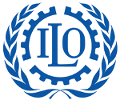Compliance with conventions is checked and certified regularly on AIDA ships. In many areas, AIDA exceeds the requirements of conventions, as is the case with our ISO 14001 and OHSAS 18001 certifications.
- ISO 14001
All our ships are certified according to environmental standard 14001 of the International Organization for Standardization (ISO) to support our implemented environmental management system (EMS). An independent third-party organization regularly checks our EMS according to ISO 14001.
- OHSAS 18001
All of our occupational health and safety management systems onboard are based on OHSAS 18001:2007, the most globally recognized occupational health and safety management system standard. This standard is regularly checked by us and external organizations.

- SOLAS
SOLAS (Safety of Life at Sea) governs the safety requirements for the design, construction, equipment and operation of ships as well as safety management.
- ISM Code
The International Safety Management Code is the international standard with which all seafaring ships must comply, which governs the safe management and operation of ships and the prevention of environmental pollution. The ISM Code is a part of the International Convention for the Safety of Life at Sea (SOLAS).Sicherheitsmaßnahmen.
- ISPS Code
The International Ship and Port Facility Security Code defines the safety standards, requirements and processes for preventing hazards in ships, ports and governments by requiring, for example, the development of safety plans, evaluations of safety risks and threats and the implementation of preventative safety measures.
- MARPOL
MARPOL (The International Convention for the Prevention of Pollution from Ships) is the most important international convention that aims to prevent ships from polluting the marine environment. The compliance with this convention is regularly checked by flag states on all AIDA ships and by all AIDA ships themselves.
- IMO Ballast Water Convention
The Ballast Water Convention helps to prevent microorganisms from spreading via ballast water into areas where they are not wanted and would threaten the local biodiversity.
- STCW
The International Convention on Standards of Training, Certification and Watchkeeping for Seafarers of 1978 sets the standards for the training, qualification and certification of seafarers, as well as standards for the skills of crew members and methods that demonstrate their abilities.

- MLC
The international basis of regulations on labor law for cruise ships is the Maritime Labor Convention (MLC) issued by the International Labor Organization (ILO) a subsidiary organization of the UNO (United Nations Organization). The world-wide applicable working conditions include health, security, minimum age, recruiting, working hours, accommodation onboard and social security and guarantees adequate working and living conditions onboard. The flag states and/or the responsible classification societies check and certify regularly the compliance with this high maritime social-standards.
- USPH
The United States Public Health Service (USPHS) was founded in 1798 as a lose network and is an authority within the Department of Health in the United States. The USPHS sets the highest hygiene standards world-wide. This applies for ships with more than 13 passengers which sail through international waters and call at a port in the US.
A complete overview with detailed descriptions of the applicable standards in cruise shipping, as well as within the Carnival Corporation, is available in the latest Carnival Corporation sustainability report





